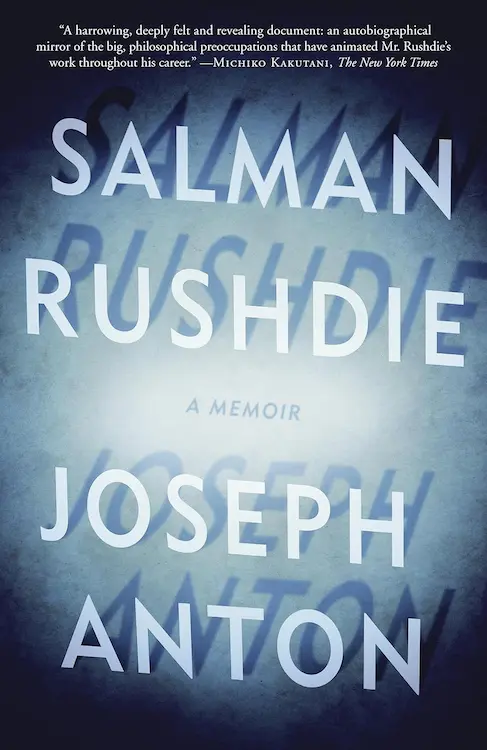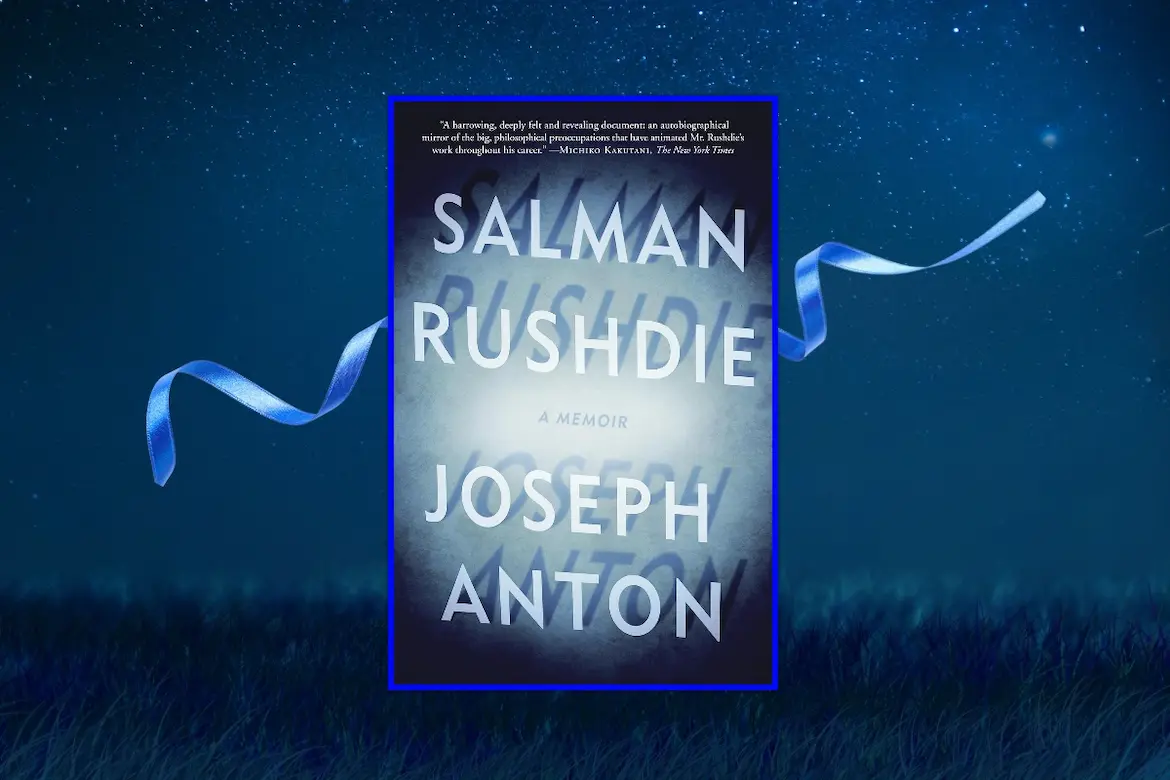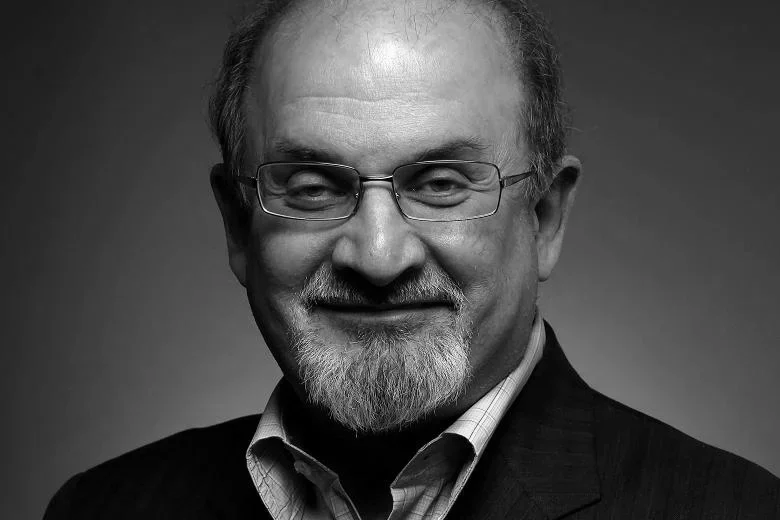Joseph Anton is a powerful testament to the resilience of the human spirit and a profound exploration of freedom of expression.
You can find and buy the books we recommend at the LitStack Bookshop on our list of LitStack Recs.

In This LitStack Rec of Joseph Anton
A Continuing Battle
Joseph Anton was published in 2012, but no memoir may be more relevant to the current moment. Salman Rushdie’s account of his life and the fatwa brought against him (relating to his book The Satanic Verses) on Valentine’s Day 1989 touches on issues that have become central to our time: the rise of terrorism, the mainstreaming of hate speech and political and religious violence, the banning of books, and state-sanctioned censorship—all of which Rushdie battled and of course continues to battle in the wake of the failed, horrific attempt on his life in upstate New York on August 12, 2022.
Cursed With An Interesting Life
Joseph Anton, is a memoir that is a rich and complex account of Rushdie’s personal, political, and literary life. The title is taken from the alias Rushdie used during the years he spent under the protection of the British government’s Scotland Yard, and is an amalgam of two authors Rushdie reveres, Joseph Conrad and Anton Chekhov:
‘Joseph Anton.’ He was trying to get used to what he had invented. He had spent his life naming fictional characters. Now by naming himself he had turned himself into a sort of fictional character as well.”
A device that heightens the sense of a fictional tale is Rushdie’s choice to write the memoir in the third person, but the reality turns out to be stark.
Irony has a role here too. In isolation, Rushdie watches the film Groundhog Day, he “identifies strongly with its protagonist.” And there is as well unintentional, and harrowing, irony in the instances when he escapes a rumored ambush or muses on the bounties motivating his assassins.
He had, he told his friends, been cursed with an interesting life, which sometimes resembled a bad novel by himself.



Life Underground Takes a Toll
In the course of the memoir, Rushie is married four times, writes ten books, becomes father to two sons, Zafar and Milan, lives in numerous borrowed houses until the successful purchase of a property in London’s Highgate under his second wife’s name. In the course of the book, he has meetings with heads of state, diplomats, members of the Clinton administration, and the US congress, and travels between London, New York, Los Angeles, and Germany, and makes a consequential return to India. To fly he must travel on specialized transport—government flights, mostly—since commercial airlines are reluctant to have him on board, fearful the target on his back will attract violence.
Bookstores that sell his books are firebombed, and tragically, translators of his work are attacked, one fatally. The protective team is always on high alert, and at one point offers him a bulletproof vest, which Rushdie refuses. “He would try to walk with his head held high.”
Yet living underground takes its toll. At one point Rushdie grows so depressed he’s unable to write. He’s also geographically separated from his young son, Zafar (from his marriage with Clarissa Luard), unable to visit him in London without the protective unit’s approval. These emotional ebbs and flows run against a backdrop of political and societal events—the fall of the Berlin Wall, the death of Princess Diana, the attacks of Sept 11—and show us, in a way not unlike the sprawling style of Rushdie’s fiction, how his personal history is stitched into contemporary global events.
The Two Most Famous Writers in the World!
There are also friendships and delicious glimpses into elite literary life. Rushdie’s literary agent, Andrew Wiley, acts as spokesman, advocate, and negotiator (with publishers as well as with the British protection service); we see the close friendships with writers Günter Grass, Harold Pinter, Bill Buford, Christopher Hitchens, and Margaret Atwood, all of whom provide emotional as well as practical support. In the early years of Rushdie’s exile from public life, by necessity, he lives in a series of borrowed houses to avoid being traced by assassins.
Rushdie’s writing and reading life has a huge presence here. He frequently quotes the writers he loves, such as Joyce’s Stephen Dedalus: “History is a nightmare from which I am trying to awake.” He also chronicles the many literary events he’s attended over the years. In 1994, he attends the International Parliament of Writers in Strasbourg and finds himself sitting with Toni Morrison, who’d just won the Nobel Prize, and Susan Sontag, who cries, “My God, I’m sitting between the two most famous writers in the world!”



Who Shall Have Control Over The Story?
Joseph Anton is a book about books, about writing them and the fundamental freedom to write and to read. And the book at the center of the memoir is The Satanic Verses. Its publication in 1988 was seen as profane, denigrating to Islam and Muhammad, and Ayatollah Khomeini imposed a fatwa, a religious death order that fueled a global wave of hate against Rushdie, despite his detractors proudly stating they’d never read the novel.
In Stockholm to receive the Kurt Tucholsky Prize, Rushdie speaks to the Swedish Academy on the freedom to write and read:
“At the heart of the dispute over The Satanic Verses…behind all the accusations and abuse, was a question of profound importance. Who shall have control over the story? Who has, who should have, the power not only to tell the stories with which, and within which, we all lived, but also to say in what manner whose stories may be told?”
That idea lies at the heart of Joseph Anton, and makes this an absorbing memoir. As the author continues to recover from the 2022 attack, his sight in one eye lost along with the use of a hand, this memoir makes clear that artists must have control of their words, and no writer should have to face the threat of violence for the stories they tell.
~ Lauren Alwan
About Salman Rushdie
Sir Salman Rushdie is an Indian-born British-American writer known for his magical realism infused with historical fiction. His novels often explore complex themes of identity, migration, and the clash between Eastern and Western civilizations.
Born in Bombay in 1947, Rushdie was educated in England and later worked as an advertising copywriter before achieving literary fame. His breakthrough novel, Midnight’s Children (1981), won the Booker Prize and established his unique voice. He continued to garner acclaim with works like Shame (1983), The Satanic Verses (1988), and The Moor’s Last Sigh (1995).
The Satanic Verses sparked controversy and led to a fatwa calling for his death, forcing him into hiding for many years. Despite this, Rushdie remained a prolific writer, publishing novels like Shalimar the Clown (2005), The Enchantress of Florence (2008), and Quichotte (2019).
Rushdie’s work is celebrated for its intellectual depth, vibrant prose, and fearless exploration of challenging subjects. He remains a significant figure in contemporary literature and a vocal advocate for freedom of expression.
You can connect further with Salman Rushdie on his website.
Other LitStack Resources
Be sure and look at our other LitStack Recs for our recommendations on books you should read, as well as these reviews by Lauren Alwan, and these reviews by Rylie Fong, Allie Coker, and Sharon Browning.
You can find and buy the books we recommend at the LitStack Bookshop on our list of LitStack Recs.








